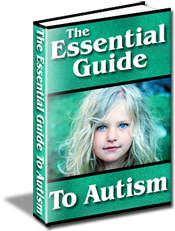Is There A Connection Between Folic Acid And Autism?
Click Here To Know The Simple Methods To Effectively Spot The 31 Signs of Autism
The numbers of those who are diagnosed with autism is on the rise, and researchers are struggling to come up with the reasons why this is happening. To date, a cure for autism has not been found, and even more troubling is that fact that there seems to be no concrete reason why this happens to some children. There are many theories out there, including one that suggests there is a link between folic acid and autism.
The problem with this theory is that folic acid is something that most women are told they must take while they are pregnant. It is well known that a lack of this during pregnancy can cause a variety of birth defects including conditions like Spina Bifida. Women have been encouraged to get as much folic acid as they can to help prevent serious birth defects. The good news is that this seems to be working and birth defects have significantly decreased, but at the same time, can this excess be a possible cause of autism?
Many women get the extra folic acid they need from foods that have been fortified with it, or from taking supplements. Folic acid is found naturally in fruits and vegetables, however as there are a great number of people who don?t eat enough of these foods, items such as flour, cereals and grain products are fortified with folic acid by the manufacturers.
Though it is established that people don?t get enough, there is some thought that some are getting too much, and this might be the cause of autism in some children. It might not be a problem for everyone, but the theory is that too much folic acid can cause chromosomal changes within a growing baby.
Because of the warnings about what a lack of folic acid can do, some foods are now being supplemented with folic acid. A smart pregnant woman will take advantage of these if she thinks she is not getting enough. However, because so many foods are being supplemented, and some doctors recommend an extra helping of folic acid, there can be too much in the system.
Besides the theory that an overabundance of folic acid can cause a change in chromosomes, another theory states that it can also cause brain cells to grow too rapidly, enlarging the brain. This then cuts down on the room within the brain for proper connections between cells to grow.
More research is needed to establish whether there is a strong link between autism and folic acid, however, the possibility might scare some women into not getting enough folic acid. If they do this, they are putting their child in danger by way of increasing their chances for birth defects.
Sign up for the free autism newsletter below and discover all the latest research into autism and natural treatment options that are available.
If you are concerned about your intake of folic acid and autism talk to your doctor about your fears. They should be able to recommend what you should be eating and how much folic acid you need for a healthy pregnancy.
By Rachel Evans. Sign up for a free newsletter about folic acid and autism and discover more on the signs and symptoms of autism.
Labels: america_autism_society, animal_autism, autism_awareness, autism_research

